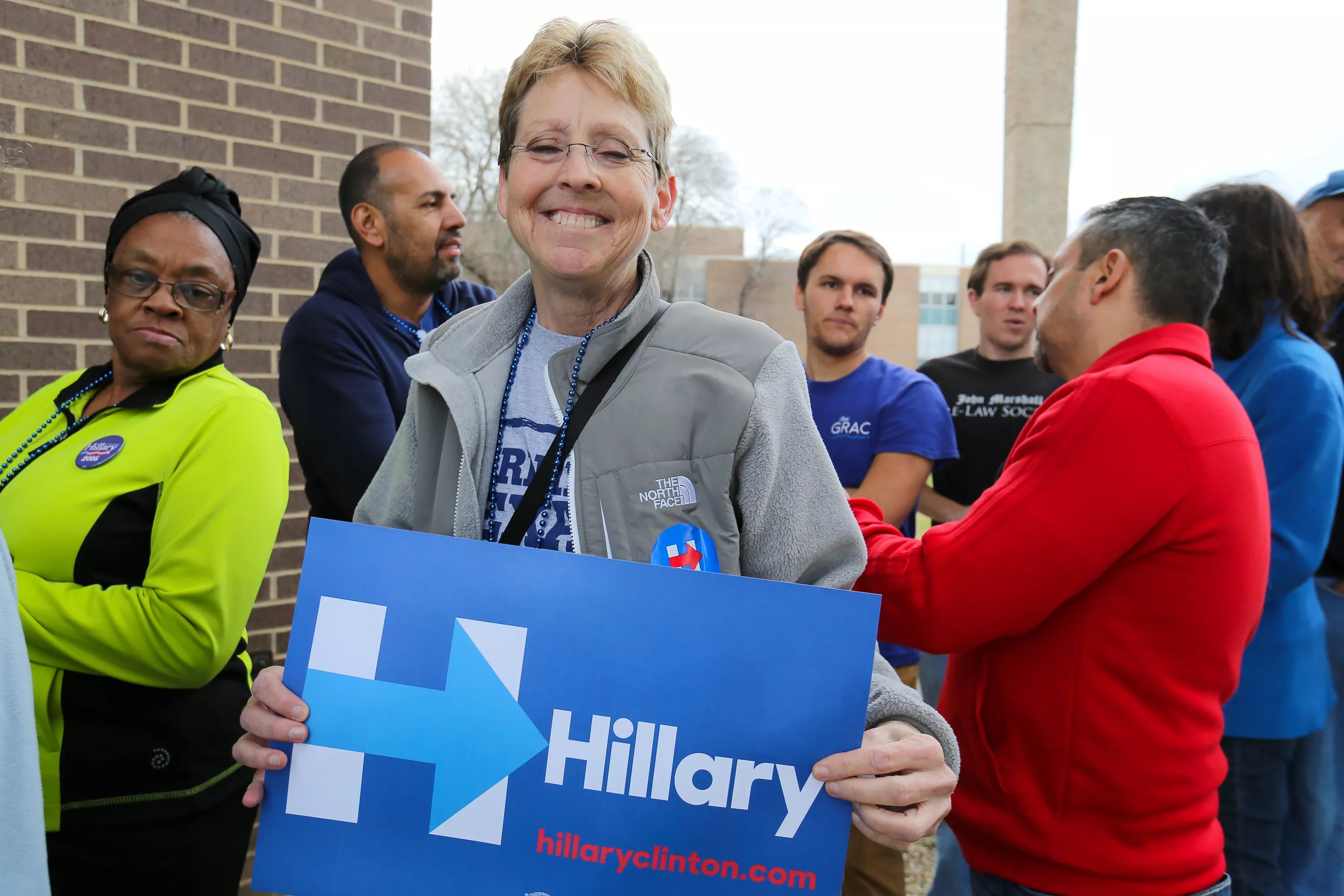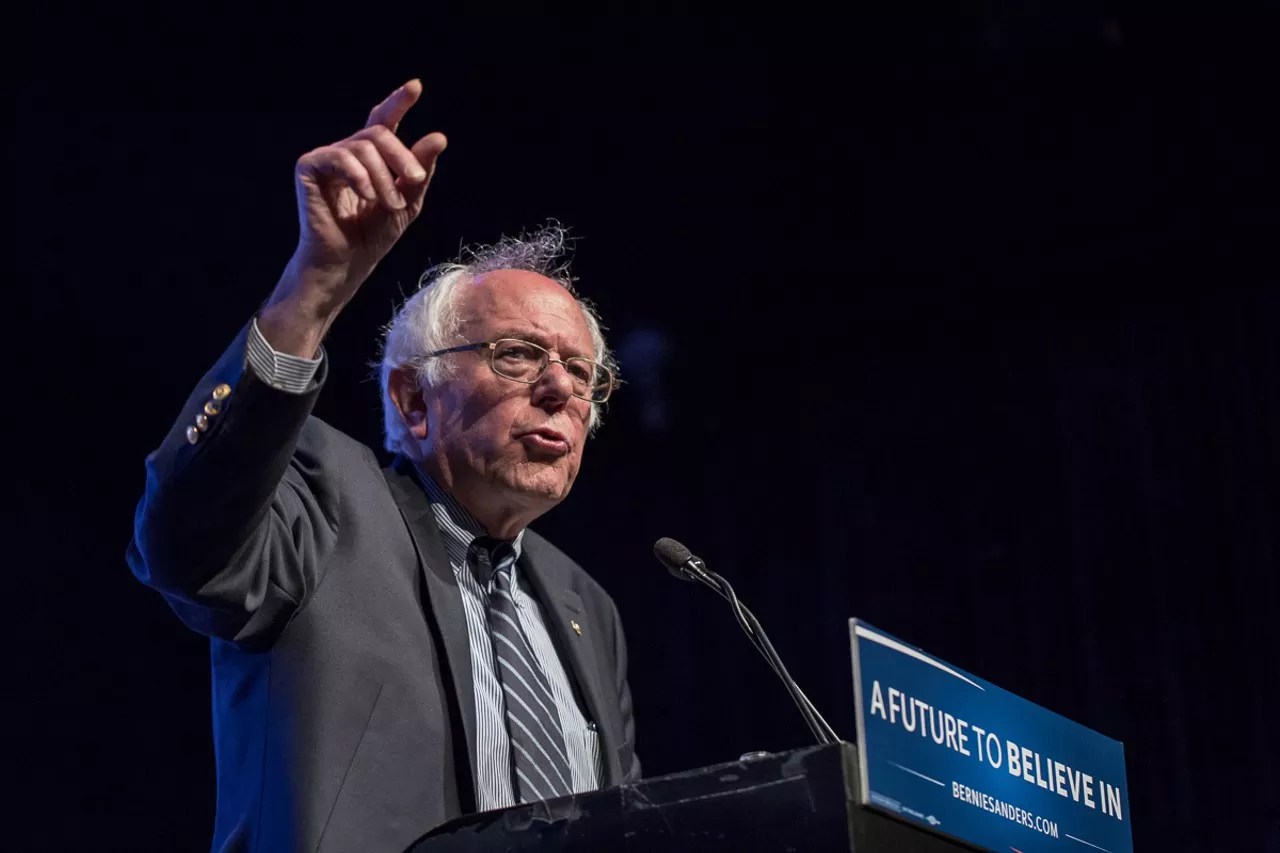
Tech. Sgt. Dawn M. Price, USAF / Wikipedia

Audio By Carbonatix
If you’ve paid any attention to the coverage of Tuesday’s presidential primary in Texas, you might have noticed a theme. Texas’ prominence on the primary calendar is treated like a novel thing, like this is the first time the state will have played a big role in choosing either party’s presidential nominee.
As much as it pains us to say it, the narrative is mostly right. Texas has often, just as it has been during the general election, been relegated to the sidelines.
Before the state gets off the bench on Tuesday, let’s take a look at some of the exceptions that proved the rule – when circumstances lined up just so and Texans’ opinions actually meant something.

Hillary Clinton supporters gathered outside a 2016 rally in Dallas starring former President Bill Clinton.
Mikel Galicia
The big one – Texas’ biggest ever primary – the one with the biggest turnout, most media attention and most significant political consequences – came in 2008. That year, then-candidate Barack Obama’s upstart campaign upended what was expected to be a coronation for Hillary Clinton in the designated early states of Iowa, New Hampshire, Nevada and South Carolina. The two campaigns continued to battle it out through Super Tuesday on Feb. 5, leaving the race still up in the air nearly a month later when the campaign moved to the March 4 primaries in Ohio, Rhode Island, Vermont and Texas.
Almost 3 million voters responded to the resources the campaigns poured into the state and participated in the Democratic primary elections, with thousands more showing up for election night caucuses. (The state has since done away with its split system.)
Clinton won the primary by a little more than three points, winning 65 delegates to Obama’s 61, but the Obama campaign out-organized Clinton in the evening caucuses, running up an advantage of nine pledged delegates.

Ted Cruz (left) and his father, Rafael Cruz, attended the Dallas County Republicans’ Reagan Day dinner.
Mike Brooks
Ted gets lucky – If Texas had been a Super Tuesday participant in 2012, maybe, just maybe, Ted Cruz would be working somewhere other than the U.S. Senate.
Cruz entered Texas’ 2012 GOP Senate essentially unknown. He’d previously served as the Texas solicitor general, but that was really it, as far as political experience went. Then Texas’ primary got pushed back all the way to May – thanks to an ongoing redistricting battle – and Cruz was able to leverage his tea party popularity and an extremely low turnout election into a runoff win.

Bernie Sanders enters the Texas primary on Super Tuesday as the Dems’ front-runner.
Melissa Hennings
Ted walks over – It’s easy to forget, but Texas was actually among the Super Tuesday states in 2016, as well. Neither primary was particularly competitive, however. By the time March 1 rolled around, Clinton had basically eliminated any real chance Bernie Sanders had of winning the nomination, and it would’ve been a huge waste of resources for any GOP candidate to take a real run at Cruz in his home state. Clinton won by 32, Cruz bested President Donald Trump by 17, and that was that.
Reagan Mania gets to Texas four years early – By the time Texas voters cast their ballots in the 1976 Republican primary on May 1, President Gerald Ford had beaten his insurgent challenger, Ronald Reagan, in eight out of nine nominating contests. Reagan walloped Ford in the Lone Star State, winning nearly two-thirds of the vote, and the race was on. Reagan piled up primary and caucus victories over the late spring and summer, but Ford eventually won out the nomination on a tightly contested first ballot at the Republican National Convention.
Former Georgia Gov. Jimmy Carter coasted to a win in the Democratic primary, foreshadowing his winning Texas over Ford in November.
Four years later, Reagan narrowly won the Texas primary over George H.W. Bush, but by that time he was already the presumptive nominee, having dominated the early states.
Texas’ polls are open from 7 a.m. to 7 p.m. Tuesday. Dallas County voters can cast ballots at any polling location in the county.